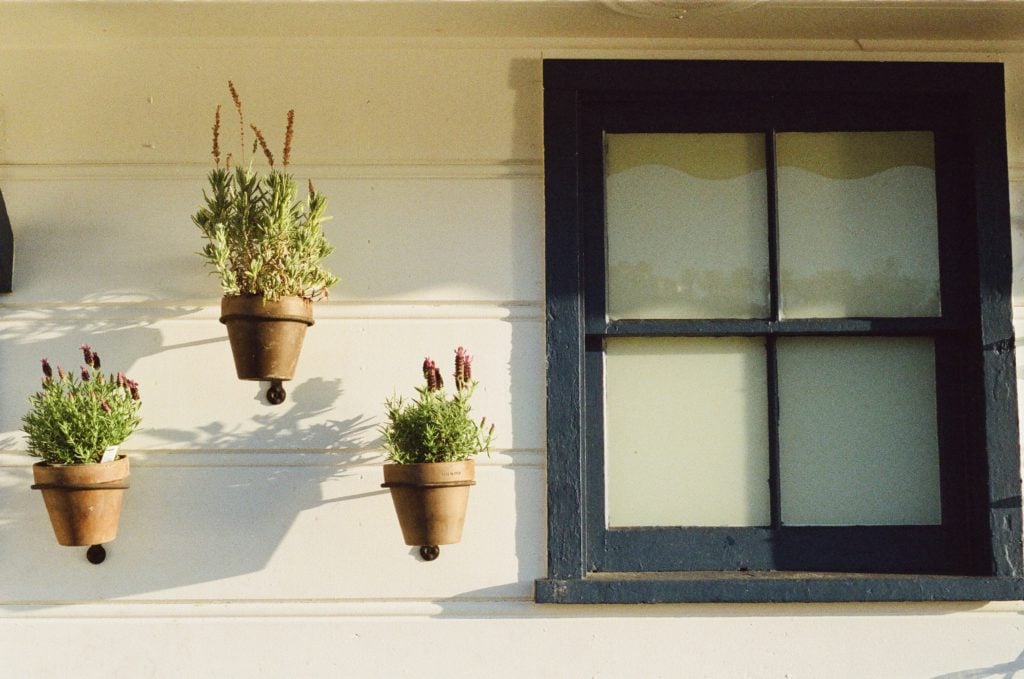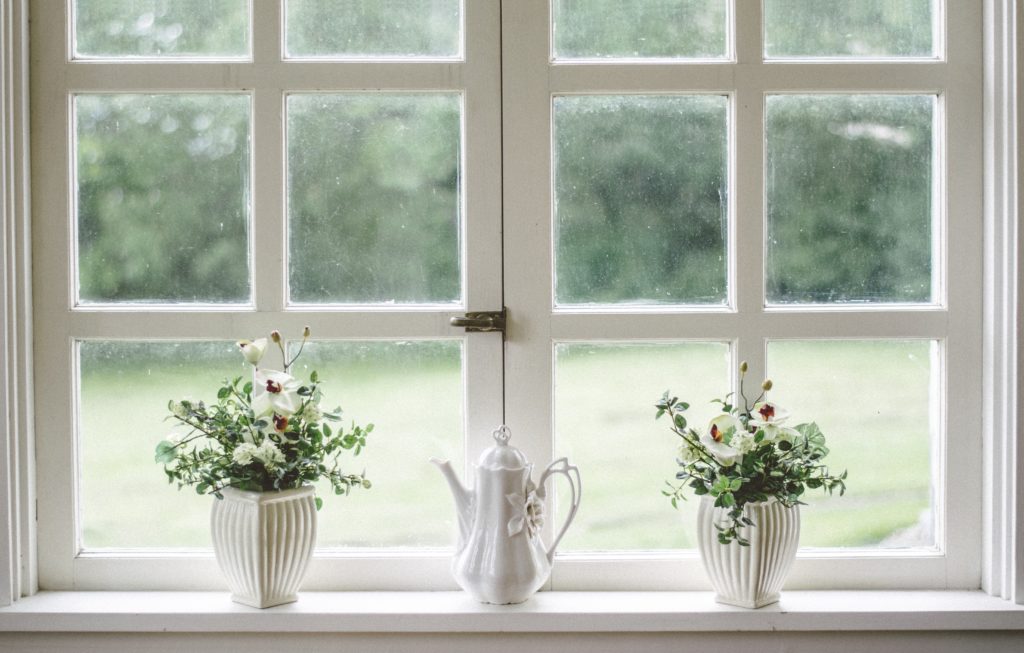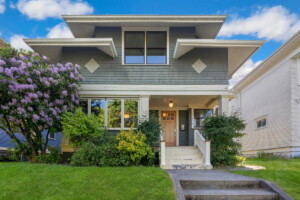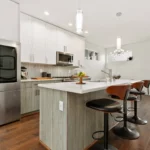Replacing or installing windows can be stressful for many homeowners. Whether it’s deciding which type of windows are best for you, choosing the right kind of glazing, or even considering if you need to replace your windows at all, there are a lot of factors to consider.
So, how do you know if you need to replace windows in your home? Perhaps you recently noticed that one or more of your windows have become difficult to open – a common problem, especially with wood windows. Maybe there’s too much sound pouring in from the street in front of your home, or condensation has begun building up between your double pane glass. Or, maybe you conducted a home energy audit after discovering your energy bills had been steadily increasing. These are common problems and are usually good indicators that it’s time for a window replacement. However, we went one step further and asked window experts some of the most common questions homeowners have when replacing windows in their homes.

1. How do I know if moisture is the problem with my windows?
When moisture accumulates on the inside of the window, it may be a sign that your windows are starting to fail. If you’re noticing condensation or mold inside the window and/or moisture pooling on the window sill, then you have reason to be concerned.
Moisture issues typically show up in fogging between the window panes or condensation on the side of the window facing your home’s interior. Special seals hold double pane windows in place and, over time, can harden and crack. Cracking is especially prevalent with vinyl windows, where the window frame expands in the heat and contracts during the colder months. This pattern of expansion and contraction causes this seal to crack, resulting in fogging and, ultimately, a failed window.
If you’re experiencing these issues, there are some things you can try before undertaking a window replacement project.
- Make sure you have a moisture barrier in the crawl space under your home. Your whole house must work against cold air rising from the ground below.
- Be sure to ventilate when cooking, showering, or doing laundry. Use a dehumidifier if you have one, and
- If you have blinds, raise them to allow air to circulate against the window.
If you have tried these solutions and still see moisture inside your windows, it may be time to consider a window replacement. –Signature Windows
Renovating your home?
Find out what your home's worth, edit facts, and see the impact of home projects.
2. How long do windows last?
Renovating your home?
Depending on the window type, a well-maintained window will generally last 20-50 years. If you’re considering replacing the windows in your home or inspecting the condition of windows in a house you’re interested in, you’ll want to look for fogged glass, damaged frames, and drafty rooms.
Although high-quality windows are available in residential new construction and remodeling, it’s difficult to determine how long the windows will last based on appearance and warranty alone. Many economy windows provide lifetime warranties, giving the impression that they’ll last forever. However, these cheaper windows tend to be lower quality simply because they were mass-produced in standard sizes compared to custom windows.
The failures that occur most frequently with economy windows are ones with insulated glass that lose their seal within the first few years, resulting in operational issues caused by substandard balance systems. If this happens, you’ll notice that the window becomes difficult to lift open, or you may start to see fogging between window panes.
Improper installation can also result in a shorter window lifespan. Poor installation can result in holes in your home’s building envelope, allowing wind, water, and insects to penetrate and cause damage to your window frames. –Replacement Windows by Brennen

3. Should I replace all of my windows at once?
Window replacement is a big job, not to mention expensive, so no homeowner should ever feel pressured to replace all existing windows at once. The biggest factor when deciding whether to replace all windows at once depends on your budget and goals. If your main goal is to install a complete set of energy-efficient windows or increase your curb appeal and it’s within your budget, you can replace all your windows at once.
Installing replacement windows happens in two or three stages – typically starting with the front of the house and then moving to the back, followed by the upstairs. These stages are essential to know since once you order ten or more windows, the cost per window remains the same. The best course of action when deciding if a whole-house window replacement project is for you is to consult with a professional to find out what you can afford. -Chattahoochee Windows & Doors
4. How do you choose windows for your home?
The decision on which replacement windows to install in your home can be confusing. However, we can break the process into four considerations: material, type of window, glass package, and budget.
Window frame materials
Most window frames are made of one of three materials: vinyl, wood, or fiberglass. Vinyl is the most popular window frame material and makes up about 75 percent of all windows sold. It’s also available in many colors, allowing you to customize the frames to match your home’s style. Plus, vinyl windows are more energy-efficient and weather-resistant, making them more durable in the short run.
If you’re looking to match the window to an existing wood trim on your home’s interior, opt for wood frames. But if you’re looking for durability when considering different replacement window options, fiberglass windows (also known as composite windows) will typically have the longest lifespan of the three.
Windows types
There are a handful of replacement window types available to install in your home. Double-hung windows are the most popular in the group. These are designed to tilt into your home and can be cleaned without the need for ladders or stools. Sliding windows are a wider but shorter type of window and are also a good choice depending on your needs. Lastly, crank-out windows should be considered as they can be used in various openings and are also the most energy-efficient option when buying replacement windows.
Glass package
Regardless of the material or type of window you choose, the glass package is the most important part of your decision. If your goal is having a more energy-efficient window, low emissivity coatings (Low-E), double-paned or triple-paned glass, and has argon or krypton gas filled in between window panes are recommended as they play a significant role in allowing heat into your home in the colder months and reflecting heat away from your home during the warmer months, saving you money on heating and cooling costs.
Your budget
You can opt for cheaper materials or style options when calculating window replacement costs, but don’t take shortcuts with the glass package. Good Low-E coating will save you money in the long run and improve your home’s energy efficiency.
Remember that even the most energy-efficient windows will allow air and even water damage to enter your home without proper window installation. Professional window installers will ensure that the window is tightly sealed to prevent air leaks and drafts. -Clearview Windows and Doors
5. How much do new windows cost?
Calculating window replacement costs can be tricky as many factors contribute to the final price. The window replacement cost will vary depending on size, amount of windows needed, and style and quality. It’s important to know what you’re looking for before calling in professionals to replace your windows.
Typically, window frames are made of either wood or vinyl. Vinyl frames are cheaper than wood, have a longer life span, and tend to be easier to clean. Wooden frames are typically more expensive and challenging to maintain as they can peel and rot due to water damage.
For a standard-size, double-hung, double-pane (energy efficient) vinyl window, expect to pay between $450 and $600, including installation. On the other hand, wood windows are more expensive, costing between $800 and $1,000 per installation.
However, if the entire window frame and window have to be removed down to the studs, be prepared to add at least $50 to $100 per installation to your replacement window costs. This is referred to as “new construction” or “full-frame” replacement windows and requires more work to install. -Northwest Exteriors
6. How do you measure for new replacement windows?
How homeowners should measure for new replacement windows depends on their specific needs. The main thing to remember is that the window will be a ¼” less than the rough opening between the framing timbers. If you have ¾” jamb extensions on both sides, then measure between them and add 1 ¼” to that measurement.
On a retrofit installation, the existing mainframe typically remains. Measure between the smallest point of the existing mainframe, then deduct ¼” from that measurement for the width and the height. -California Doors and Windows
7. How do I determine which type of glazing I need on my windows?
There are essentially two main types of residential glass: a 2-coat Low-E and a 3-coat Low-E. Each type is typically available with or without argon or krypton gas filling. In climates where cooling is the biggest concern for most of the year, such as homes in Las Vegas or San Antonio, a 3-coat Low-E is the best option. This reduces the most heat gain from the sun and offers the best U-value, lower SGC/SHGC, and U-value/U-factor numbers. In contrast, the 2-coat Low-E will allow for some heat gain during the winter months but still provide a good U-value for insulating against the cold climates that require more heating.
Additional items to consider for the type of Low-E used on glass is the hue the Low-E has. 3-coat Low-E glasses often have a more pronounced hue registering as a bluish or greenish cast on the glass, whereas 2-coat Low-E glass tends to be clear with little to no noticeable hue. The more coats of Low-E a glass pane has, the less light will transfer through. –Martel Windows & Doors

8. When’s the best time to buy replacement windows?
Late spring, summer, and early fall are the most popular times for homeowners to replace their windows since the weather is warmer. Although replacing a window can be quick, having a window removed for roughly a half to a full hour can impact your home’s temperature, making the warmer months ideal for anyone who can’t stand the cold.
The other benefit of replacing windows in the first part of the year is that you can enjoy their benefits throughout the summer since they reduce the heat gain during the warmer months. However, replacing windows during the winter months could help you save money if you can tolerate the cold. –Lake Washington Windows & Doors
Looking to save money on your mortgage?
9. How do I prepare for a window replacement?
Before a professional window installer arrives, homeowners should remove any curtains or blinds from their openings so the installer has access to the interior to set and caulk the windows. As installers need access to the interior of the windows, be sure to move any furniture at least 3 feet away from the openings and anything of value located around the windows.
Keep in mind that if there are any alarm systems on the windows, you’ll also need to notify the alarm company of the upcoming work. The sensors will need to be removed, and the alarm company may need to come to the house so that they can be reinstalled.
Finally, relax, run errands, return to work, and let the installers do their job. This will limit any potential stress involved for both the homeowners and installers during the window installation process. –Chesapeake Thermal



























 United States
United States Canada
Canada